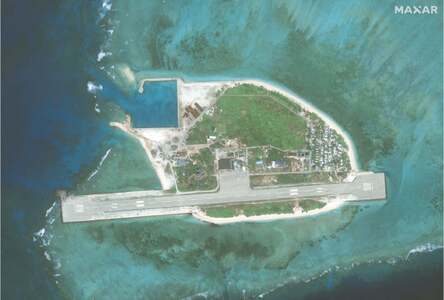DHAKA, May 27: Dhaka on Tuesday agreed the UNHCR offer to reactivate the tripartite mechanism for voluntary repatriation of the remaining 27,000 Rohingya refugees in Bangladesh to Myanmar.
Some 260,000 Rohingyas fled to Bangladesh in 1991 to avoid being repressed by Myanmar security forces because of their Muslim religion and ethnicity.
While tens of thousands have returned home, 27,000 Rohingyas refugees have refused to be repatriated, opting for the relative safety of squalid refugee camps.
The remaining Rohingya refugees have been languishing in two camps in Cox’s Bazar and Bandarban for more than 16 years. Of them, 10,800 refugees stay in Kutupalong Refugee Camp near Cox’s Bazar and the rest 17,000 in the Nayapara camp.
Bangladesh, the UNHCR and Myanmar signed a tripartite agreement in Dhaka in 1992 to send back the refugees. The deal has been dormant for years.
However, the fresh proposal for reactivating the tripartite mechanism came on Monday when the United Nations High Commissioner for Refugees, António Guterres, met Bangladesh officials including the chief adviser, Fakhruddin Ahmed.
‘Our intention is to re-establish the trilateral mechanism involvingBangladesh, the UNHCR and Myanmar to create the condition for voluntary repatriation of the Rohingya refuges to their homeland in safety and with dignity,’ Guterres told reporters after his talks with Bangladesh’s foreign affairs adviser, Iftekhar Ahmed Chowdhury.
Chowdhury told newsmen, both Bangladesh and the UNHCR agreed that the problem must be resolved and that too in cooperation with Myanmar.
In reply to a query on the plan for resettling the remaining refugees in third countries, Guterres said the office of the UNHCR has resettlement programmes for refugees and Canada is the highest recipient of Rohingya refugees.
He said the office of the UNHCR is now discussing with some other countries as, he said, there are opportunities of resettlement of refugees in South America and southern European countries.
Guterres, also a former Portuguese prime minister, said he would be advocating other countries to increase their quota for Rohingya refugees, “even if we know that will never replace the preferred solution of the problem.”
He said: “Our preferred solution is to create the possibilities for the people to be able to go back to their home in safety, in dignity on a voluntary basis and to be able to be part of construction of their own country.”
“It is always a negative thing to be refugee even if assistance is provided and their protection is guaranteed,” he added.
When his attention was called to media reports on some local UNHCR officials campaigning for refugees not to get back to Myanmar, Guterres said, “This is not absolutely true. If by any chance it is discovered with concrete suggestion that any member of the UNHCR or NGO or any department is involved in such act, strong action would be taken.”
Guterres said: “Our objective is to return the people to their home, not to prevent them from going back. We want them to be repatriated in dignity and safety on a voluntary basis.”














































Dear visitor, the comments section is undergoing an overhaul and will return soon.